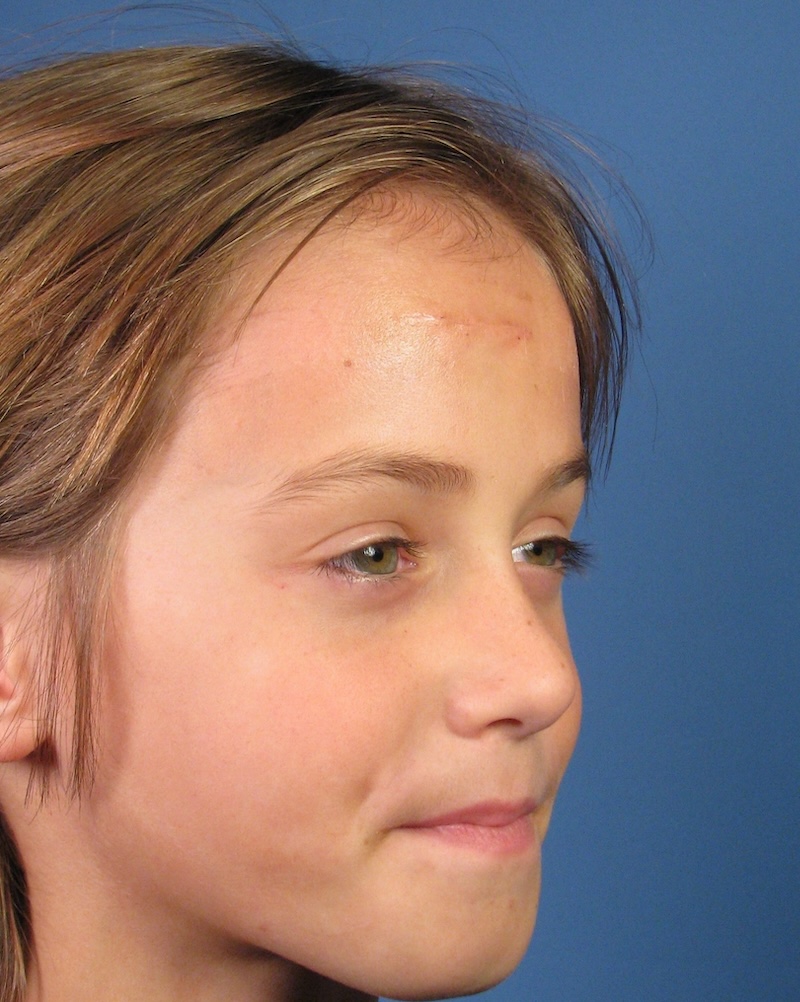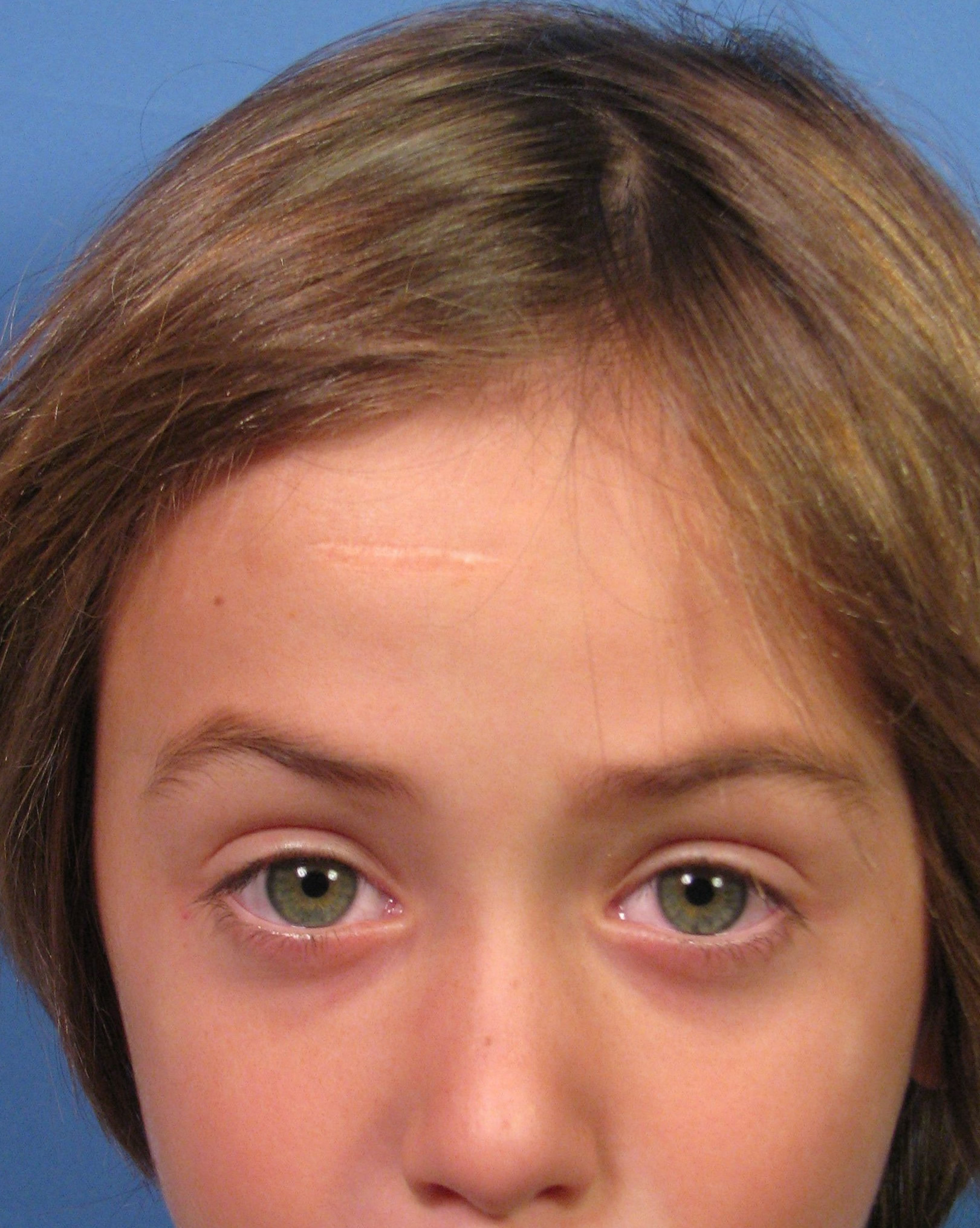I hear it all the time from scar revision patients – “But it looked so good when the emergency doctor finished sewing it up.” Unfortunately, as I tell all my facial scar revision patients, the wound should not look very good if the surgical closure is done properly. If you suffer a laceration, for instance, to the forehead or cheek, you will likely need sutures to repair the injury. In my opinion, any laceration that is in a highly visible area of the face, should be managed by a board certified facial plastic surgeon or board certified general plastic surgeon. Although there are some emergency room doctors that are better than others, they simply don’t have anywhere near the experience that we board certified facial plastic surgeons have when it comes to sewing up the skin of the face. One of the most common errors made when repairing facial lacerations or other related facial injuries is not closing the deeper layers under the skin properly. In order to repair a soft tissue injury of the face like this, you must properly close the layer under the outer skin using a principle called ‘eversion’ of the dermis. The dermis refers to the thicker, fibrous tissue under the outer skin surface. This is the more resilient layer of tissue that can resist more tension and, thus, be used to the surgeon’s advantage to provide strength to the wound as it is healing. All wounds will tend to want to pull apart with time. This doesn’t always occur in the first few weeks following surgical repair. This can also occur months down the road. If you don’t account for this normal part of wound healing, the skin will stretch apart in time and create an undesirable scar that is much more visible. To counteract this unwanted tension in the scar, you must evert the skin edges during repair of a laceration or closure of a surgical incision. This eversion process makes the incision or wound appear as if it is raised up like a slight mound, or ridge. This wound eversion is sort of like a built-in ‘slack’ in the skin. This then allows the skin to stretch as it will do through normal healing without creating a wide or unsightly scar. This is precisely why a facial laceration or wound should look less than ideal if closed properly by a facial plastic surgeon.
San Diego Scar Revision Example
A visual example of this is provided here. This young boy from San Diego sustained a facial laceration of his forehead. Unfortunately, it did not heal as desired and left him with a widened, stretched scar. I performed scar revision on him, which involved removal of the old scar and meticulous realignment of the skin edges. In performing the scar revision surgery, I very carefully everted the skin edges to create the ridge that I alluded to earlier.
Eversion of Scar
 As you can see from his photo, which was taken 8 days after the scar revision, the skin is raised up where the repair was performed. This ridge of skin will eventually flatten out naturally with time as the normal forces of healing pull on the wound. Had I not performed eversion of the skin as part of the scar revision, these eventual forces would have made the scar widened and stretched once again. Hopefully this helps any of you out there wondering why the skin looks like it does following this type of plastic surgery repair. I will try and keep you posted as to this patient’s progress over the next year or so.
As you can see from his photo, which was taken 8 days after the scar revision, the skin is raised up where the repair was performed. This ridge of skin will eventually flatten out naturally with time as the normal forces of healing pull on the wound. Had I not performed eversion of the skin as part of the scar revision, these eventual forces would have made the scar widened and stretched once again. Hopefully this helps any of you out there wondering why the skin looks like it does following this type of plastic surgery repair. I will try and keep you posted as to this patient’s progress over the next year or so.
Posted on behalf of
11199 Sorrento Valley Road Suite 202
San Diego, CA 92121
Phone: Call Us 619-296-3223
Email: consultant@drhilinski.com

